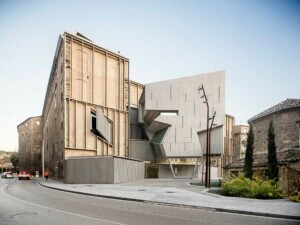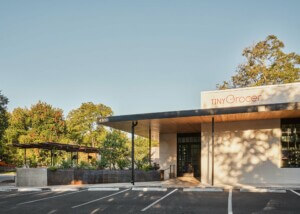Following the closure of the Art Institute of Colorado building in late 2018 in Denver (alongside a host of other institutions now under the Dream Center Education Holdings umbrella), it was announced on September 30 that Nichols Partnership paid $15.25 million for the site with plans of transforming the property into as many as 155 micro-units. When asked about the reasoning behind the ten-story structure’s conversion, Randy Nichols, one of the partners of Nichols Partnership, said that “this building just happens to work out perfectly in the depth of the floorplate, so that we can get small units in there and they’re not super long and thin.”
The company believes that the apartments, all of which would range between 300 and 450 square feet, would become desirable given the building’s proximity to Denver’s city center and the Libeskind-designed Denver Art Museum. Nichols commented that developing micro-units “is a way to make an affordable place to stay for people who are priced out of this very expensive apartment market.” Whereas a typical studio apartment in the area might go for $1,500-to-$1,700 a month, Nichols Properties hopes to rent their micro-units for closer to $1,100-to-$1,200 a month.
The Art Institute is the third building in the area repurposed for micro-units by Nichols Partnership, the other two being a former hotel near the Mile High Stadium now known as “Turntable Studios” and a former medical office building near City Park now named “Cruise.” “Doing conversions of beat-up, old unoccupied building is kind of becoming a specialty, I guess,” Nichols reflected. “It’s a really good way to mitigate the ridiculous cost of new construction.”
The company hasn’t yet settled on a name or theme for the new development, but Nichols suggested that they may incorporate student artwork that was left on desks before the building was vacated. With a projected total price tag of $35 million, the renovation is anticipated to begin next year.











